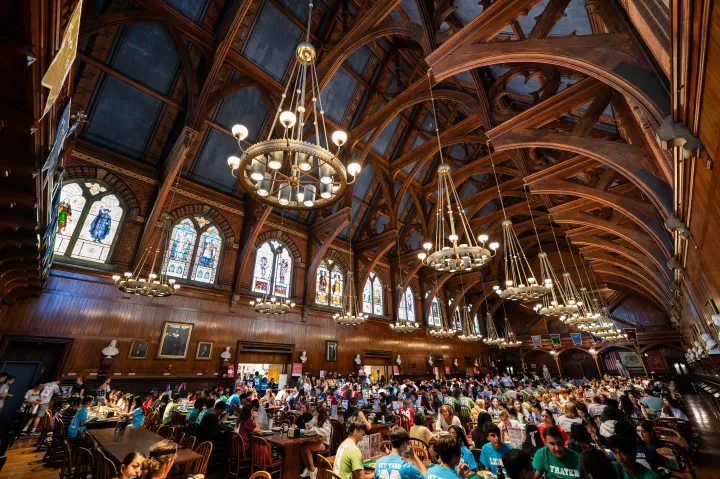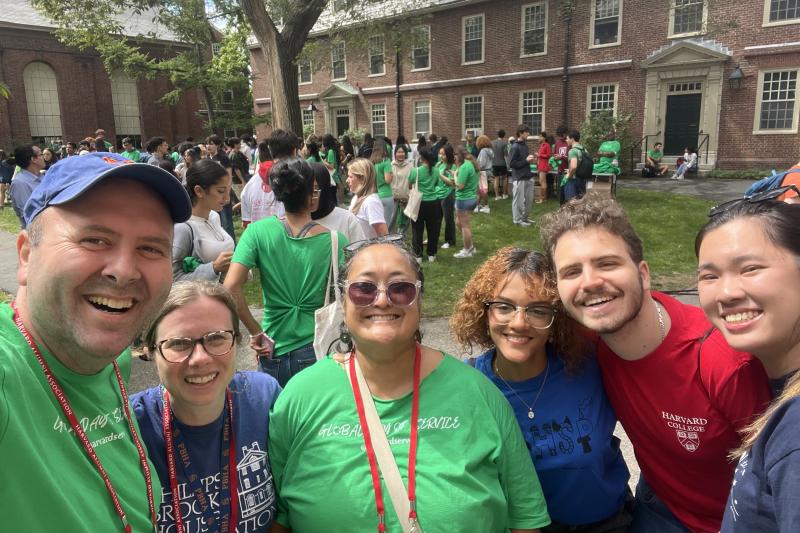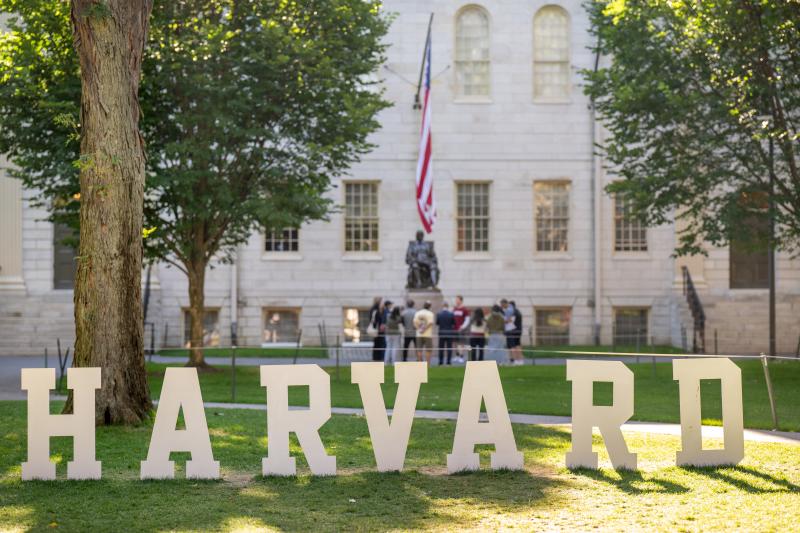
HUDS Serves Sustainability to Harvard College
While thousands of students dine on campus each day, Harvard University Dining Services (HUDS) works hard behind the scenes to not only feed the Harvard community but also reduce its environmental footprint.
Over the years, HUDS has demonstrated its commitment to enhancing the Harvard dining experience, including the addition of Halal stations, Kosher options, and the infamous dairy-free Dole Whips.
For the Fall 2025 semester, HUDS focused on sustainability and implemented two major initiatives to reshape how Harvard eats, powered by artificial intelligence and reusable containers.
Smarter, AI Kitchens
For any large-scale dining operation, food waste is one of the most challenging issues. Due to fluctuations in crowd levels, food preferences, and more, it’s typically difficult to predict the amount of leftovers HUDS will have at the end of each day. To address this, HUDS has implemented Winnow, a new AI-powered system. At Adams House, Currier House, and Annenberg, HUDS installed a floor scale with a camera above it. When non-donatable food scraps are placed in the compost bin, Winnow snaps a picture, weighs the waste, and identifies the type of food by using AI. In addition to continued feedback from students, the data gathered through Winnow will help HUDS make more informed decisions about which food to prepare and how much of it to reduce waste.
Takeout to Bring Back
The second significant change from HUDS will be more visible to students: reusable, green takeout containers. In the 2024-2025 school year, Harvard students used over 600,000 compostable paper containers for takeout meals. Going forward, HUDS has introduced 15,000 reusable, microwavable, BPA-free plastic takeout containers that can be washed and reused up to 40 times each. Each container has a barcode, and once scanned, the container links to the student’s Harvard ID. Students check out containers in the same way they check out books from the library; the loaned container even appears in Harvard’s library system, HOLLIS. HUDS is asking that all containers be returned within 48 hours. However, if it’s not returned within one week of checkout, it is marked as lost, and a $10 charge is applied to the borrower. Once containers are dropped off at the designated return station, HUDS staff thoroughly clean and sanitize the containers, then put them back into circulation for another takeaway meal. By utilizing this new container system, Harvard will replace hundreds of thousands of single-use containers with a much smaller, reusable stockpile. This idea originated as a pilot in Mather House and received enthusiastic feedback from students, who appreciated its simplicity compared to apps or token systems tried at other schools.
Collaboration for a Greener Campus
What makes this container program possible isn’t just HUDS—it’s their collaboration with other teams throughout Harvard. Harvard librarians and IT staff graciously offered HUDS their checkout technology and expertise on best practices. The scanners, barcodes, and containers in the pilot program were then covered through funding from the President’s Administrative Innovation Fund (PACE). “This is exemplary of what happens when all the Harvard departments work together,” Crista Martin, Director for Strategic Initiatives and Communication for Harvard University Dining Services, said. “We don’t always need new technology; we should make better use of the ones we already have.”
The long-term success of both sustainability initiatives heavily relies on student participation, including returning containers on time, being mindful of food waste, and spreading awareness.




